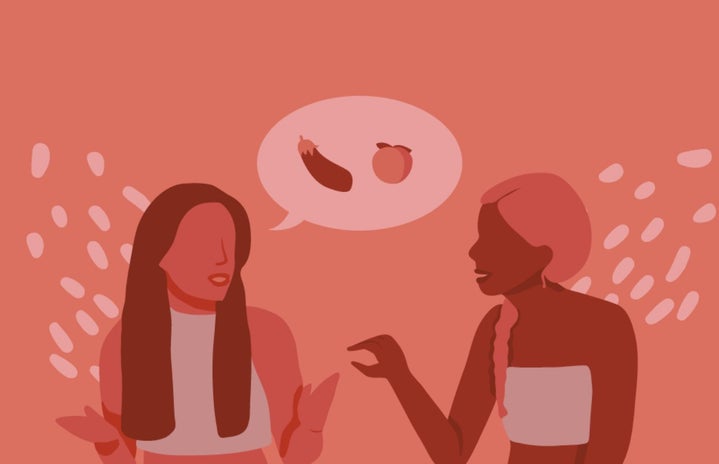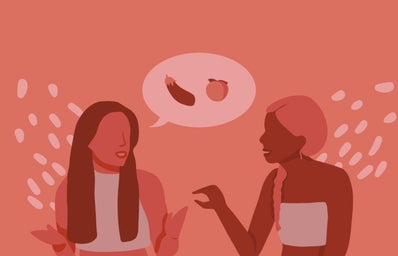If the dating world wasn’t already scary enough, it’s a lot harder to navigate when you are on the asexual spectrum. We are frequently overlooked and misunderstood not just in the heteronormative world, but also within LGBTQIA+ circles. As an asexual person, I have been met with confusion a number of times when I tell people that I am also sex-positive. But how can those two co-exist? Doesn’t asexual mean you choose not to have sex? The answer to both of those questions is No. Asexuality does not mean celibate and sex-positivity does not exclude asexuality, and this piece will clear up those misconceptions.
The ace spectrum

There are a multitude of labels that fall on the asexual spectrum (commonly referred to as “a-spec).” With labels ranging from “asexual/aromantic” to “grey-asexual/greyromantic” and “demisexual/demiromantic,” there are many places one can fall on the spectrum depending on what types of attraction — or lack thereof — we experience. Asexual/aromantic simply means that a person does not always experience sexual or romantic attraction. Grey-asexual/greyromantic is when a person falls in some area between asexual and sexual, or aromantic and romantic. Demisexual/demiromantic is when people require an emotional connection that develops over time in order to experience sexual attraction or romantic attraction with a partner.
I personally identify as asexual and demiromantic. This means that I do not experience sexual attraction, but I do experience secondary romantic attraction. I need to have a deep emotional connection that is formed over time with people in order to experience any form of romantic attraction to them.
This has made me extremely picky when it comes to dating. I am not on dating apps, because they always trigger my anxiety and enhance my insecurities. I have stepped away from the dating world in order to take care of myself mentally. If I actively search for a partner because of social pressure, and not because I genuinely want to, that would be a complete waste of my time and energy. It would not be fair to my hypothetical partner either.
So what does sex-positive actually mean?

When we hear the term “sex-positive,” what often comes to mind is the concept of embracing all forms of sexuality and sex as natural parts of life. This is true, but what often gets forgotten about the sex-positive movement is that it is also about challenging harmful norms and stereotypes about sex and sexuality. This is where asexuality fits into the narrative.
Asexuality and celibacy are not the same thing. There are many a-spec people who are also sexually active, and there are also many a-spec people who are not, but that does not mean that we all have an aversion to sex. I am a very sex-positive and sexually liberated person. I am always willing to immerse myself in sex-positive spaces and also engage in meaningful conversations about kink, BDSM, and sex work.
One of the biggest misconceptions about a-spec people is that we are prudes who have an aversion to sex and everything else related to it. Not only is this false, but it is incredibly damaging to the ace community. Pop cultural representation of people on the ace spectrum is still very sparse. The entire movie revolves around desperate attempts to try and get the protagonist laid, rather than examining whether or not he actually wants to have sex. Not only do movies like The 40-Year-Old Virgin — which shames its protagonist for not having sex — trivialize asexuality, but they also make a mockery of people who aren’t sexually active.
Related: Think You’re Queer? Then You’re Queer (If You Wanna Be)
The only accurate representation I have seen of asexual people in pop culture is the character Todd from the show BoJack Horseman. He goes through a period of unsureness and eventually comes out on the show, making for an unprecedented portrayal of asexuality. But that is still only one version of the experience. Not every person on the asexual spectrum is as sex-repulsed as Todd is.
People on the asexual spectrum possess a variety of individual experiences. No asexual person is the same. We are not a monolith. We are a diverse group of people. And many of us are also sex-positive, whether we have sexual experience or not.


